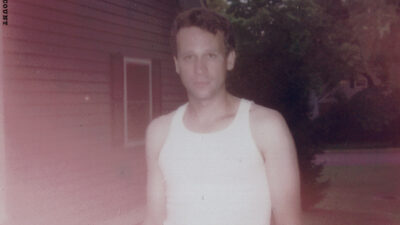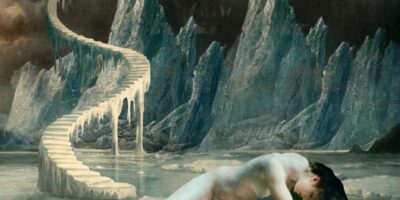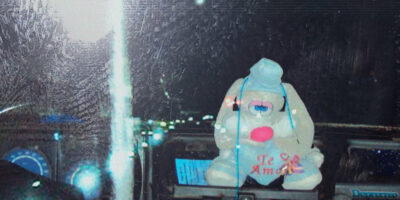Genre: Pop, Alternative
Favorite Tracks: “Inland Ocean,” “Bonnet of Pins,” “Junk”
The joy of listening to a National song was how you never could feel confident Matt Berninger knew what he was doing. Unlike Interpol or other bands that got “good” in the same Brooklyn scene, Berninger always sounds like a guy who exists on his own level of musical expression, with standards that are exacting and subtle in the same way Robert Pinskey or Count Basie might be. Berninger’s artistry floats along an ineffable decorum that makes him singular, and this singularity allows him to surprise listeners, to trust him when they can’t see the same road he can.
Accentuating this is a real aspect of existential unhappiness, both in the words and attempt at emoting those words. Berninger isn’t gesturing at despair, and every vocal fray, every note let go too soon, shades this in such a way as to make it real. On the hangdog opener of Berninger’s SERPENTINE PRISON, “My Eyes are T-Shirts,” he sings of the way he lets his wife see his despair, while sounding, genuinely, like he might walk out on the recording and give it all up. Recorded around the time he was turning 50, there’s more air in the vocals than before, and his voice is speckled with gravel, giving him gravitas not dissimilar to what Tom Waits found around a similar age, or what Leonard Cohen was left with after burning through the major years of his career.
On Berninger’s latest effort, GET SUNK, the first track, “Inland Ocean,” has a washed out blissful harmony that plays over a bouncy repeating chord, reminiscent of the best yacht rock if it were reimagined as something by way of The xx or a chilled-out Caribou. By the time Berninger kicks in, and the plodding snare beat kicks in, the listener is made to understand the song is pleasant, near cozy, perfect for a Noah Baumbach film soundtrack, even if the lyrics are about how, “Everything ends before I want it to.”
The problem is that every track sounds like a great song for an indie movie, and The National’s sad nobility of the depressed upper-middle class schtick is so infectious and identifiable that it’s hard to fully grasp how this album differs from a National album. On “No Love,” as part of an album sequence, the strange karaoke track-esque quality to the music stands out, but by the time we get to the chorus of “Maybe after once in a lifetime / We’ll figure out what we lost / But we won’t have any idea what / It’s probably somewhere in the parking lot” while the cry one single tear over a pint, isn’t life beautiful chiming strings play, it’s hard to distinguish the song between a Berninger track and an Aaron Dessner track, or a National track.
The answer for a keen listener seems to rest in the smallest of subtleties. For example, “Bonnet of Pins” features a guitar squawk that screams of 80s fun in a way the National would never dream of having in their compositions. Later in the track, Berninger almost sounds like he’s having fun as he speaks in a staccato way heard on Depeche Mode and pre-rap-rock tracks before the song gets half-way to being something you can dance to for twenty seconds. An errant saxophone line on “Frozen Orange,” and more talk-singing through a woozy vocal effect brighten the edges in a way that’s not seen on the more buttoned-up rock of his band. In these variations and interpolations, riffs on the formula of what makes his band successful, Berninger finds himself, and, be it genuine, or the airiness of his aging voice, he sounds happy. On the so-so duet “Breaking Into Acting,” one could swear they hear something like a smile in the melody lines of his warbly baritone.
The seventh track, “Junk,” may be the best amalgamation of Berninger’s aging hipster who wants to run free, and the conventions of what we like about him, and by extension, The National. More of a sketch than a song, the track features a serious-yet-sloppy guitar line that plays a child-like pattern of simple chords, while Berninger sings, wheezes, and eats vocal shit singing “Take me all apart / I’m only junk / Do what you need to baby, I’ve given up / I only love you baby / I’m only love / Without you baby / I’m only junk.”
The imperfectly great lyrics are a fair compromise between who we know Berninger to be and the fun, more experimental person he aspires for on this record. The inability to hit certain notes, or rather, hit them flat, like splatting a juicy bug, lends a glow of charm to his voice that we haven’t heard before (even if it’s not ultimately a flattering aspect to his vocal quality overall). If this is Berninger trying to tell us something new about himself, then perhaps the so-so quality of the album overall, or the anemia of age seen so often in pop music, are beside the point. Perhaps it’s best to consider that behind the stateliness, there’s a softer, gooey, goofier side to a man who has seemed so serious and sincere for so long. Maybe it’s yet another ‘cry a single tear over a pint’ / ‘isn’t life beautiful’ victory to hear Berninger share a sense of warmth and happiness—worthwhile musical endeavor or not.
















Comments